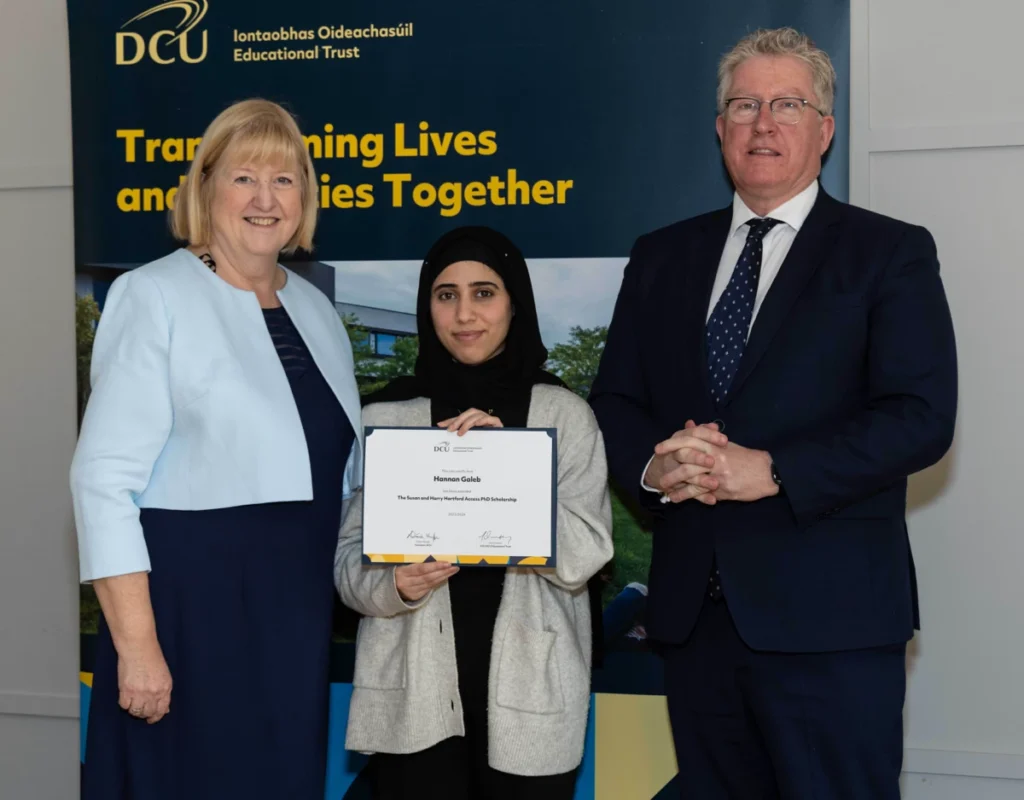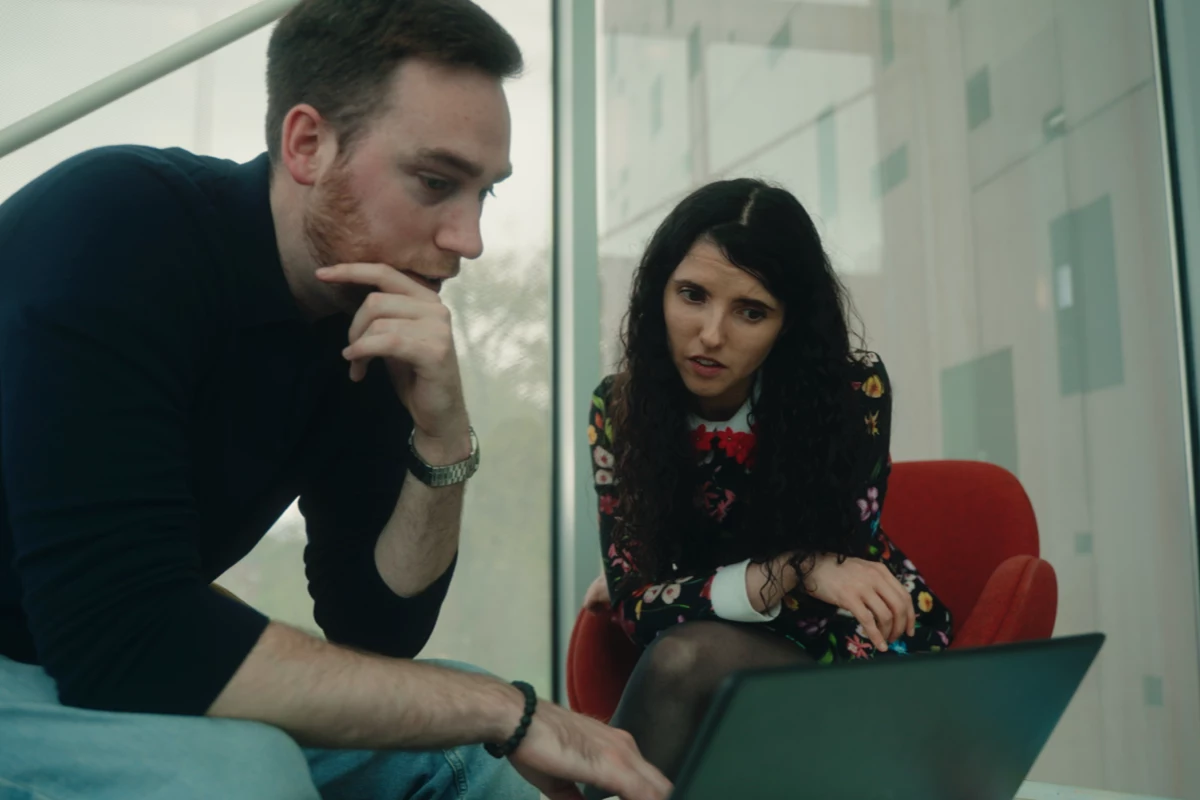
Research for
Society

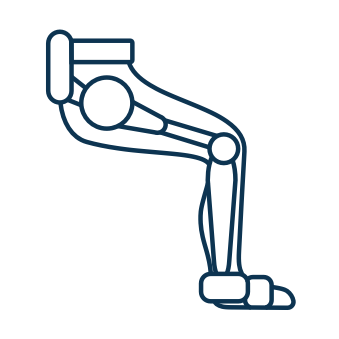
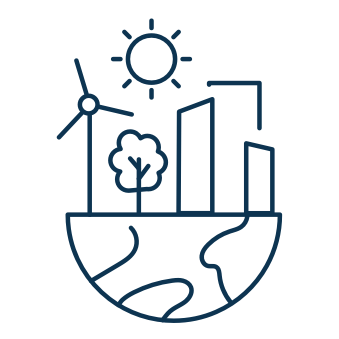

Powering Research with Impact…
Our research develops breakthrough solutions for a brighter future – and our philanthropic partnerships enhance our ability to lead, innovate and create knowledge with real-world impact.
The vision and support of our partners enable us to expand our cutting-edge research programmes and grow our doctoral student community through PhD scholarships, supporting the next generation of talented researchers to excel. By backing DCU’s research expertise in areas such as health, education and climate solutions, philanthropy is advancing our mission to transform lives and societies.


Research for Society supported by philanthropy in 2023/24 included:
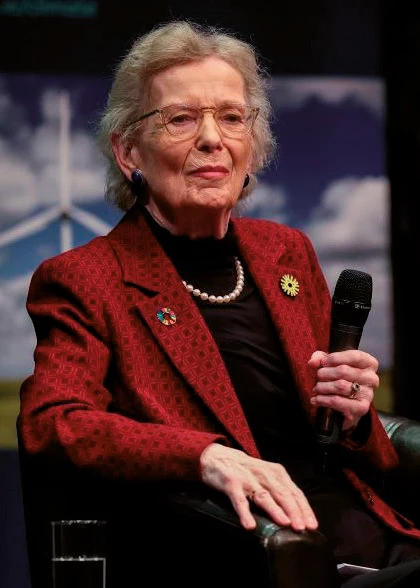
DCU Centre for Climate and Society
Supported by founding partner Deloitte, Ireland’s first research centre dedicated to leading societal responses to the climate crisis continued its growth in 2023/24, expanding to 42 academic members and 15 PhD students. This year, the Centre was announced as co-lead of the social science platform of a major Co-Centre for Climate + Biodiversity + Water, spanning Ireland, Northern Ireland and Britain. The Centre also leads a new Horizon Europe project, RETOOL, focused on climate change and democracy. Our Centre members have been active in creating climate resources for student journalists, developing climate engagement materials for government, and delivering training for International Maritime Organisation delegates on measures to reduce emissions. The Centre hosted its fourth – and largest – annual conference, ‘Climate Justice Across Generations,’ in April 2024, with former President of Ireland Mary Robinson delivering an inspiring keynote address to over 330 attendees.
Former President of Ireland Mary Robinson was keynote speaker at ‘Climate Justice Across Generations’
Doctoral Research
In 2023/24, our partners further increased the scale of our doctoral student community by supporting seven PhD candidates to pursue research in fields ranging from music to biotechnology. This year also saw the creation of a number of new PhD scholarships supported by philanthropy, including the Autism Education PhD Scholarships and the Paula and Hannah Delves Scholarship, established to support doctoral studies in the field of cancer research.
Prometric Chair in Assessment
At his inaugural lecture as Prometric Chair in Educational Assessment at DCU, Prof Ernesto Panadero added to the crucial debate about the role of artificial intelligence in education. A world-leading expert in educational psychology and the effects of educational assessment, Prof Panadero leads the DCU Centre for Assessment Research, Policy and Practice in Education (CARPE). CARPE was established in 2015, with philanthropic support from Prometric, to enhance research and practice in assessment across all levels of the education system, from early childhood to fourth level and beyond.
DCU Changemaker Schools Network
This network is based on the simple but powerful idea that all children can be Changemakers, with the skills and confidence to lead change in their home, school, community and society. With philanthropic support from basis.point, Rethink Ireland and a group of individual donors through Community Foundation Ireland, the network grew to 28 member schools in 2023/24. Each year, the network equips over 7,800 students with the essential skills of empathy, creativity, leadership and teamwork so they are ready to thrive in an unscripted future and to lead change in our society.
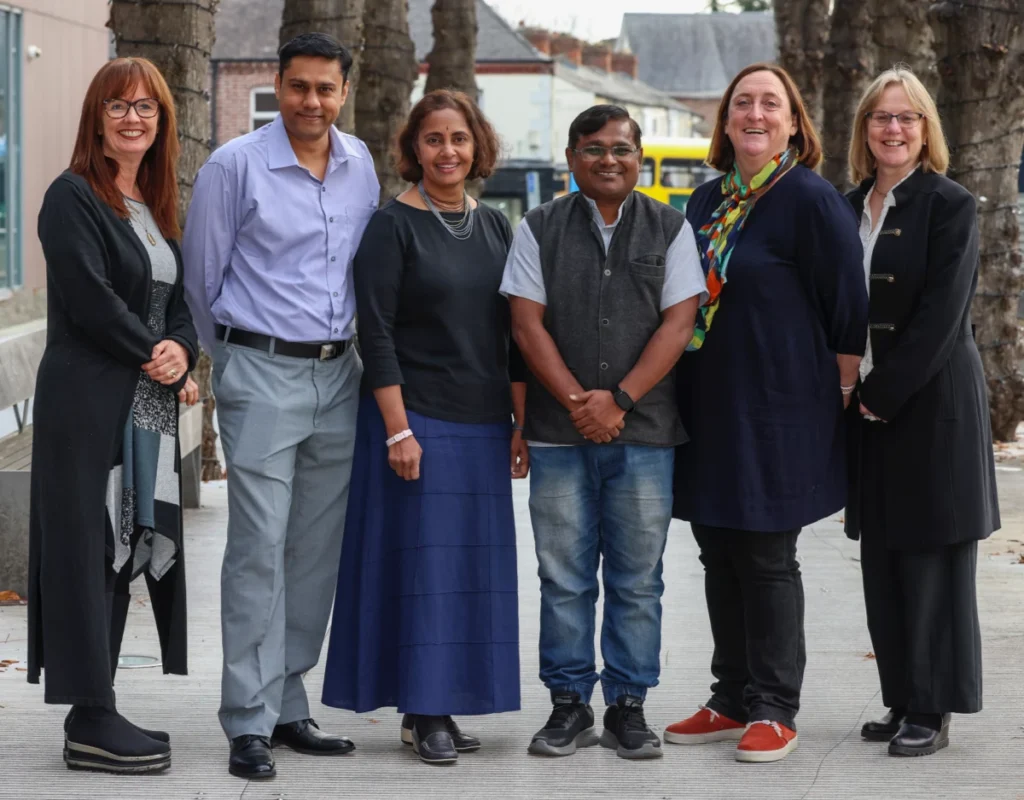
Dr Cliona Murphy, Naughton scholar Dr Khemanand Moheeput, Naughton Chair Prof Hamsa Venkat, Naughton scholars Vinay Lautre and Dr Lynn Bowie, and Dr Margaret Leahy
Naughton Family Chair in STEM Education
The Naughton Family Chair is the first in Ireland to focus on STEM (science, technology, engineering and mathematics) education at primary level and in early childhood. As Chair, Professor Hamsa Venkat has made a significant impact on education research, policy and practice, both in Ireland and internationally. In 2023/24, this included the launch of the Naughton STEM Education Scholars programme, designed to advance research initiatives in the developing world that foster equity, diversity and inclusion in STEM education.
Three scholars from South Africa, Mauritius and India had the opportunity to visit DCU and collaborate with our researchers to design education interventions that could be rolled out in their home countries. Last year, the Chair also led the development of a new Masters specialism in STEM Education to support skilled, cutting-edge STEM teaching and leadership in Irish schools.
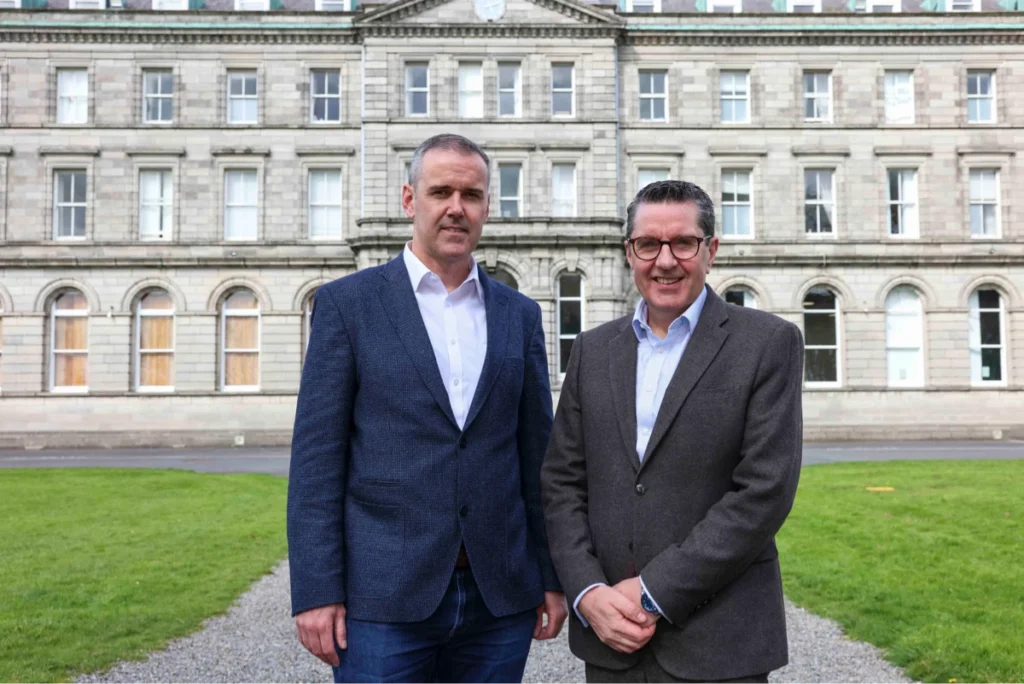
The Equinix Foundation announces support for DCU Anti-Bullying Centre
DCU Anti-Bullying Centre
Last year, research from DCU Anti-Bullying Centre found that 13.8% of 12- to 13-year-olds in Ireland reported experiencing offline bullying and 6.4% reported being subjected to online bullying – at least once a month. The FUSE Anti-Bullying and Online Safety Programme developed by the Centre is a vital intervention that gives students, teachers and parents the tools to tackle bullying and promote online safety. In 2024, with support from the Department of Education and Rethink Ireland, the programme reached 67,000 students in 460 primary schools and 122,000 students in 587 post-primary schools. New philanthropic support from the Equinix Foundation is now backing essential research on children’s online safety and the protection of LGBTQ+ groups, in collaboration with DCU School of Law and Government. The Centre’s experts also collaborated with Vodafone Ireland Foundation in Ireland and Childline by ISPCC to develop content and features for the Tozi app, co-designed with young people to tackle bullying and promote online safety.
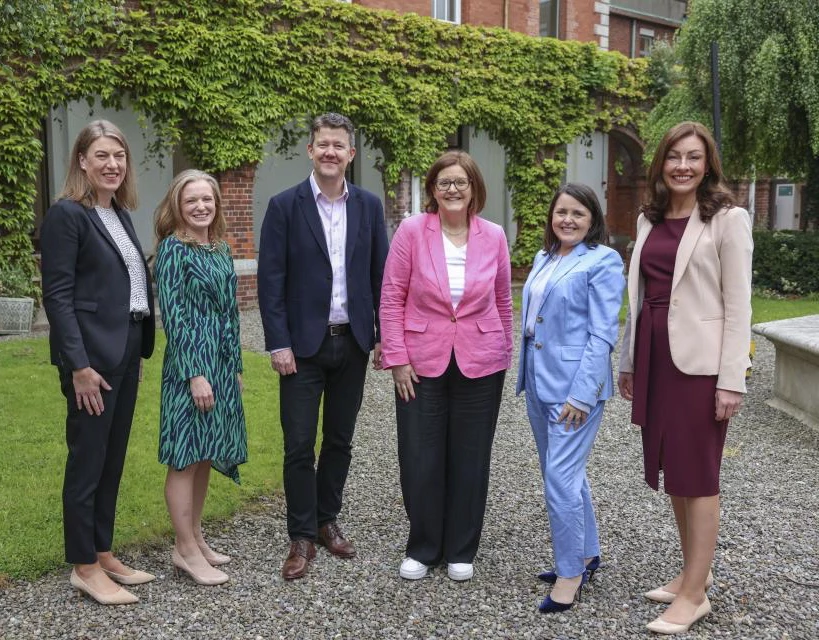
Focus on:
Driving Research on Autism Education & Neurodiversity
In a significant new programme of philanthropically funded research on autism education and neurodiversity, four PhD scholarships have been created through matched funding from philanthropist Paul Kerley and Bank of Ireland. These scholarships are enabling much-needed research on autism education in post-primary schools, with a focus on topics such as developing neuro-affirmative practices in mainstream schools, supporting the academic success of Autistic learners, supporting their wellbeing in schools and understanding the experience of Autistic girls in secondary schools.
Looking beyond the education system, DCU has partnered with Bank of Ireland and Accenture to carry out a separate study that will identify both barriers and enablers for neurodivergent people in the workplace. At present, less than one-in-five workers believe their company’s policies and practices support neurodivergent people. Led by Dr Aoife Brennan and Dr Laura Gormley, this project is producing neuro-affirmative and inclusive guidelines that will support Irish businesses to embed inclusion in their everyday practices.
“These PhD scholarships will build on our track record of participatory research – conducting research not just about autism, but with Autistic children, young people and adults.”
Prof Anne Looney, Executive Dean of the DCU Institute of Education
“We are taking practical steps to make our organisation one of the most neuro-inclusive in the country. Our partnership with DCU to deepen understanding and create neuro-affirmative schools and workplaces will help us to achieve this ambition in Bank of Ireland. Ultimately, we intend the research will help create practical guidelines for other Irish organisations, helping Ireland be a world leader in neuro-inclusion.”
Matt Elliott, Chief People Officer at Bank of Ireland
Focus on:
DCU Exoskeleton
Programme
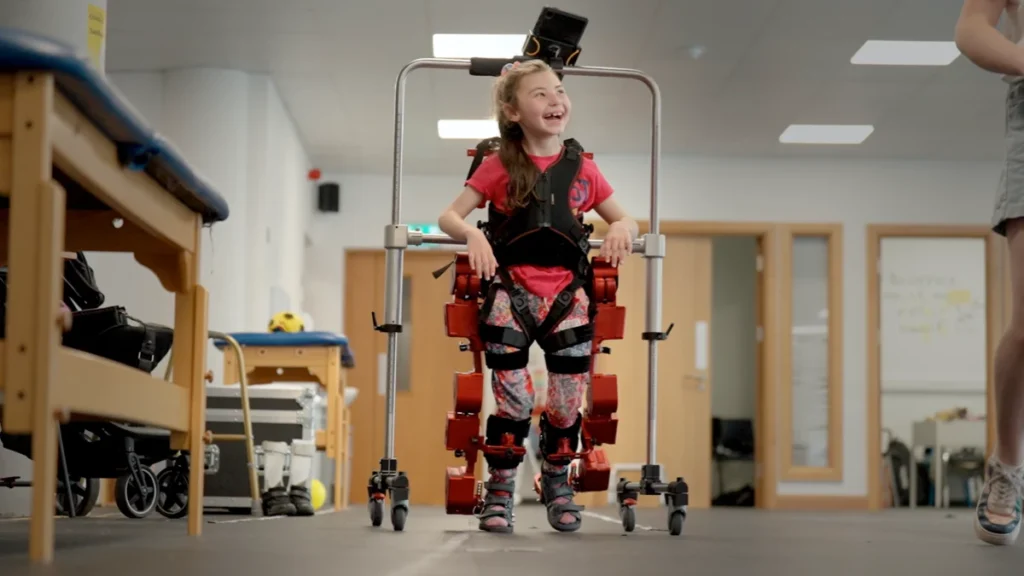

Niamh
McCallion
Programme participant
“When I walk in this suit, I get the physical benefits of walking for bone density and reducing muscle spasms, but there are also the mental benefits. It’s a huge boost. To be able to take a thousand steps, or hug my children standing up… I don’t get that anywhere else.”
The DCU Exoskeleton Programme enables vital research into the future of paralysis treatment, and provides a range of health benefits to service users. In 2024, we launched the world’s first paediatric exoskeleton research programme for children with neuromuscular conditions, thanks to philanthropic funding through Community Foundation Ireland and the Cerebral Palsy Foundation.
The DCU Exoskeleton Programme supported 996,533 steps for people living with paralysis this year. For the first time, that support has been extended to paediatric wheelchair users, with over 100 sessions in a robotic exoskeleton suit for children delivered in summer 2024. Philanthropic support has made this research programme possible – and the studies carried out with our community of exoskeleton users will shape the future of paralysis treatment.
DCU’s first paediatric research study explores parents’ perceptions of robotic exoskeleton walking compared to conventional physiotherapy. In the coming year, our researchers will investigate whether regular walking in a paediatric exoskeleton suit improves gross motor skills, independence skills, and quality of life in children with neuromuscular conditions such as cerebral palsy. These world-first studies into the efficacy of exoskeleton walking sessions for children will lead the way in developing evidence-based paediatric physiotherapy practice.
Through a further seven parallel research studies led by Dr Brendan Egan, Dr Kieran Moran and Clinical Lead Ronan Langan, the DCU Exoskeleton Programme is investigating the health impacts of exoskeleton walking sessions for adult wheelchair users, from brain and muscle physiology to improved gait and sleep. In a study exploring the impact of regular walking in an exoskeleton for our most experienced users, programme participants were found to experience a reconnection with their body and an improved physiological sense of the paralysed body.
Focus on:
Doctoral Research
Together, we can support a new generation of doctoral students to pursue research with impact. By offering scholarships that remove the personal and financial barriers that can stand in the way, we’re growing our doctoral community and empowering more talented young researchers to achieve their potential.

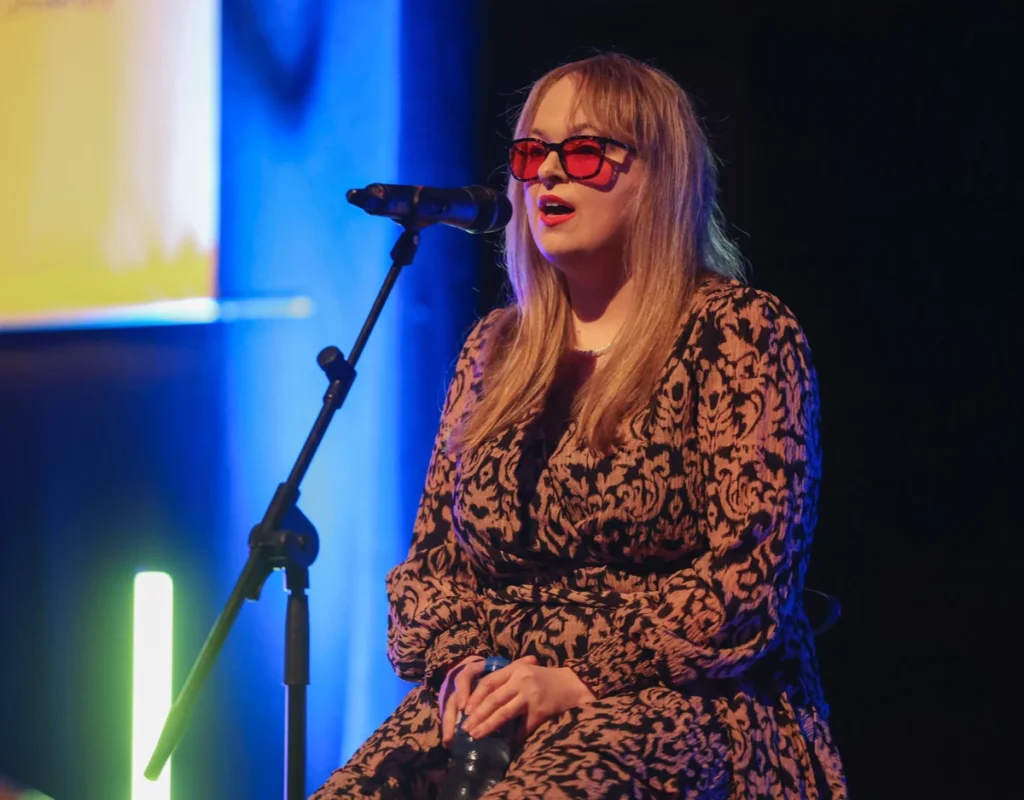
Rebecca Kelly
Choral Studies Research Project
“Applying for PhD funding is very difficult with a visual impairment. My scholarship gave me the support I needed to make my dream a possibility and make my mark. My research is focused on disability in a choral setting. I’m exploring how choirs can support musical and social connections for people with a disability, and looking at the effect on singers’ wellbeing. I hope this research will support inclusion for so many others.”
